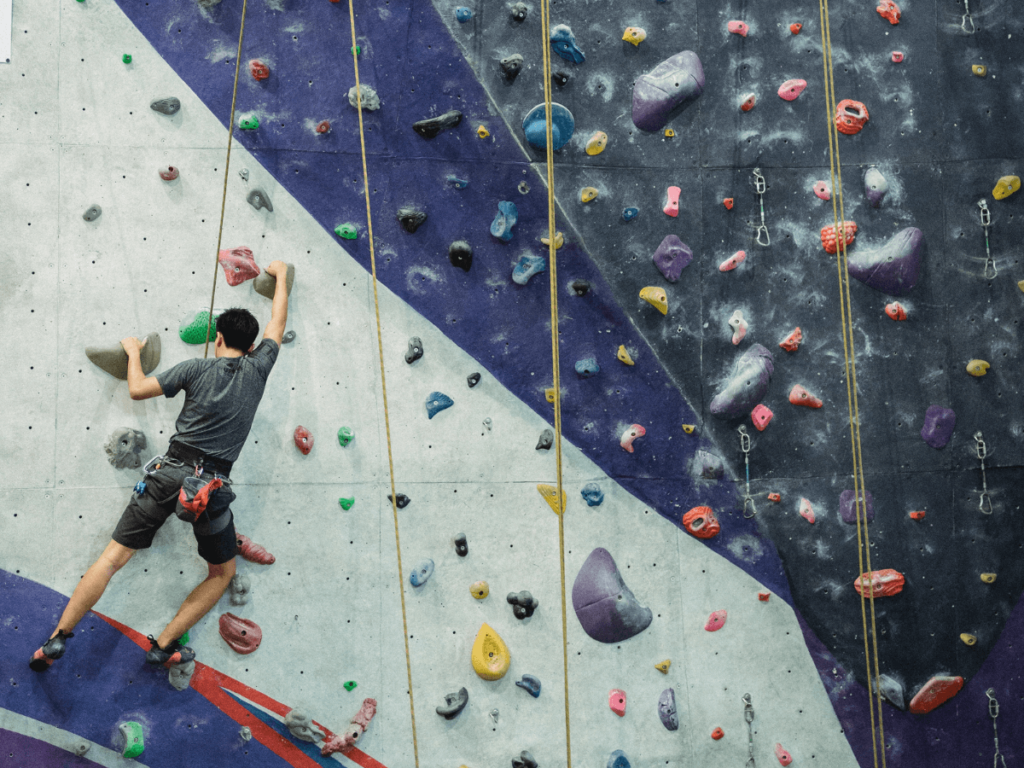Rock climbing, as a sport, is growing. Professional climbing has earned its spot on the Olympic stage, and youth climbing has World Championships, but what about in between the two? The USA Climbing Association offers a collegiate competition series in the United States. While not an official NCAA sport, many colleges have a small on-campus climbing wall or a nearby gym. Outdoor adventure or designated climbing clubs also exist at the schools, and they may meet to go on outdoor climbing adventures or train for competitions together. As the next generation of strong, competitive youth climbers age out of the youth circuit, some may look straight toward the professional arena. At the same time, most former youth competitors will likely search for opportunities to continue competing and training in college.
If you are interested in collegiate limping competitions, garnering interest among peers to compete, or even starting a climbing program at your university, here are the 5 best tips to increase participation and competition.
5 Tips to Increase Participation in Collegiate Climbing Comps

1. Host Social Events around Competitions
The night or two before a competition, have someone from your group host a pasta night. While you aren’t running a marathon at the competition, pasta is a classic dinner that is relatively easy and cheap for college kids to make. Have everyone bring a pasta dish, dessert, side dish, or beverage, and then eat together while playing games, listening to music, and relaxing before the competition!
The camaraderie and friendship built at these social events will make the competition environment more welcoming when each climber is comfortable and friendly with their fellow climbing peers.
2. Participate in local, non-sanctioned competitions to introduce climbers to competitions.
We mentioned that the USA Climbing Association has a series of competitions for college students. Individual colleges will also host stand-alone comps and invite schools in the surrounding area. If you have many first-time climbers or competitors, these school-run competitions are an excellent opportunity to dip feet into the competitive climbing realm. They offer beginner, intermediate, and advanced categories to compete, raffle off prizes, play music, and create an all-around upbeat environment. Unlike sanctioned competitions where people are vying to make it to divisionals or nationals, these smaller comps are full of friendly faces, new friends, and a good time.
3. Make team jerseys/t-shirts
Climbing is an individual sport. Many college kids may have team sports experience but are uneasy about competing individually. Making team jerseys or t-shirts will remind potential competitors that they have the support and encouragement of the other climbers from their school. While the individual is climbing on their wall, any of their teammates can cheer them on and give them words of encouragement or praise before, during, and after attempts.
4. Train for competitions together 1-2x per week.
Outside of bringing the team camaraderie to competitions with matching shirts or jerseys, train as a team leading up to the events. If there is an experienced competition climber among the group, have them share their tips and facilitate conversations about fears, worries, or questions about competing. Creating a safe space to climb together and address anxieties before competing can help new climbers/competitors feel more confident and excited as comp day approaches.
Doing the same climbing workouts as a group may also help the hesitant climbers feel more prepared for a competition when they can participate in the same training regime as their experienced peers.
5. Emphasize the experience over the results.
Individual competition formats allow college climbers to place pressure on themselves and internalize everything they do during the event. A guaranteed way to add to their self-inflicted pressure is to emphasize performance results, as in place. Instead, focus on fostering a climbing club environment where having a positive learning experience is the goal. Podium results are great, but having fun and learning more about yourself as a climber and competitor can be equally valuable, if not more.
Collegiate climbing is an enjoyable and exciting endeavor that is accessible to climbers of any level and is a great platform to build your collegiate climbing community around! Keep the vibes positive, be encouraging, and center on the community and social aspects of rock climbing and training. If this article has sparked any comments, questions, or other tips, please drop them below! We love hearing your feedback and continuing to keep the community growing!

